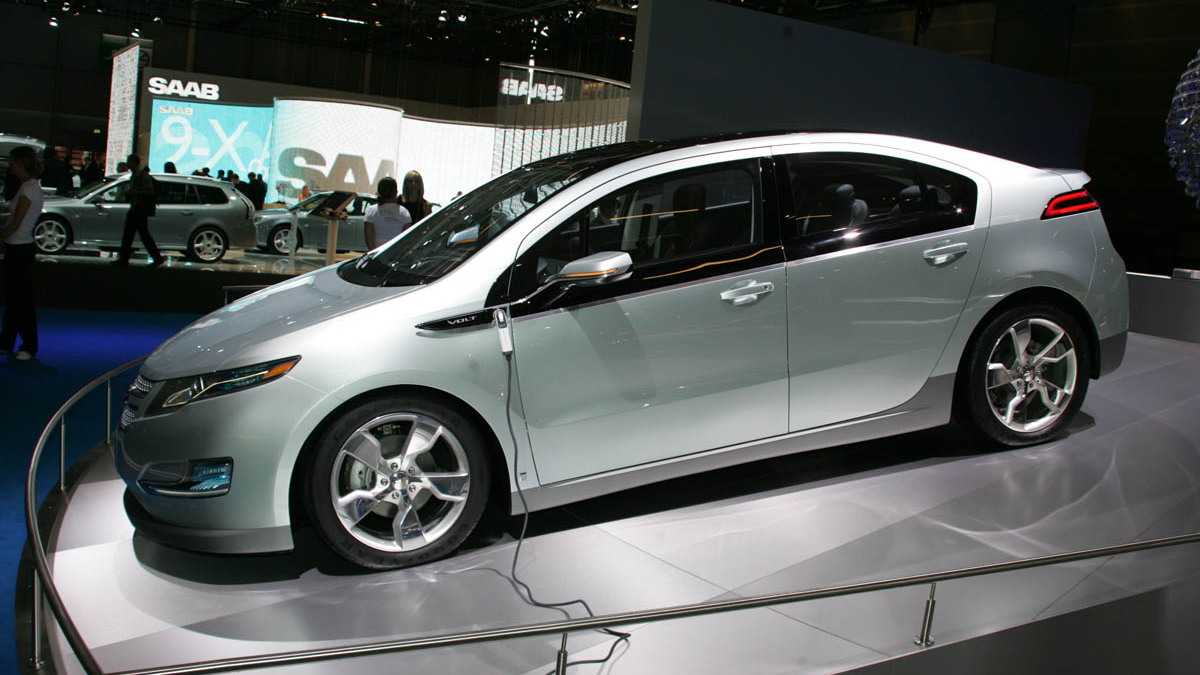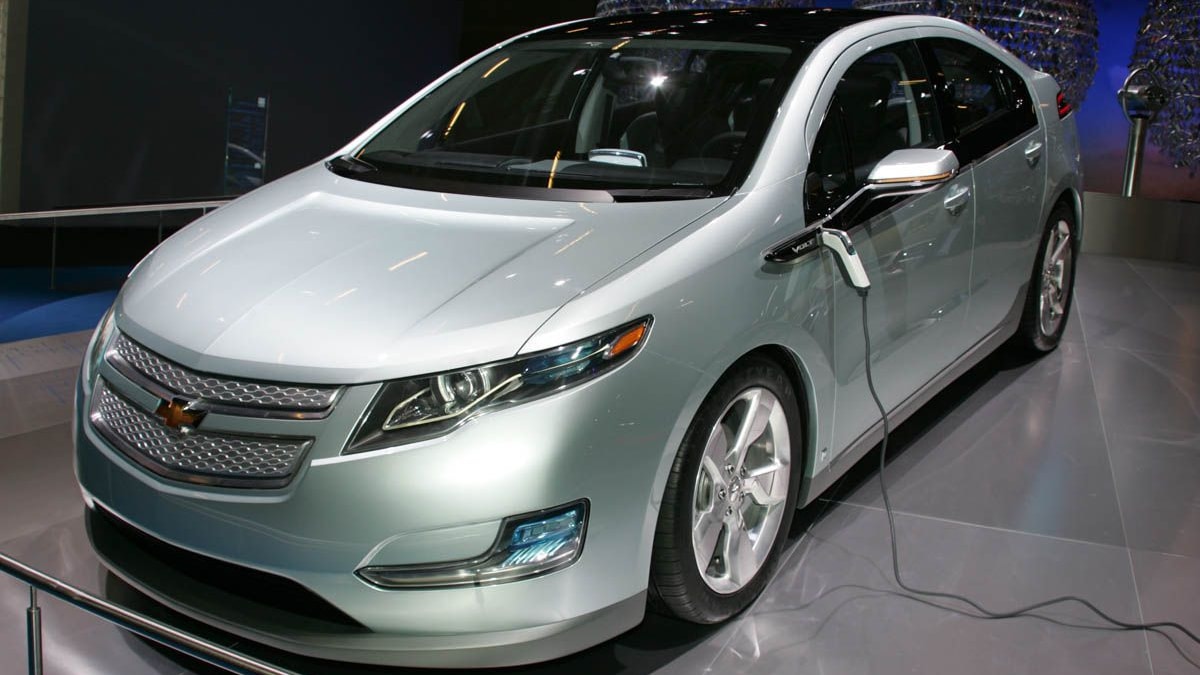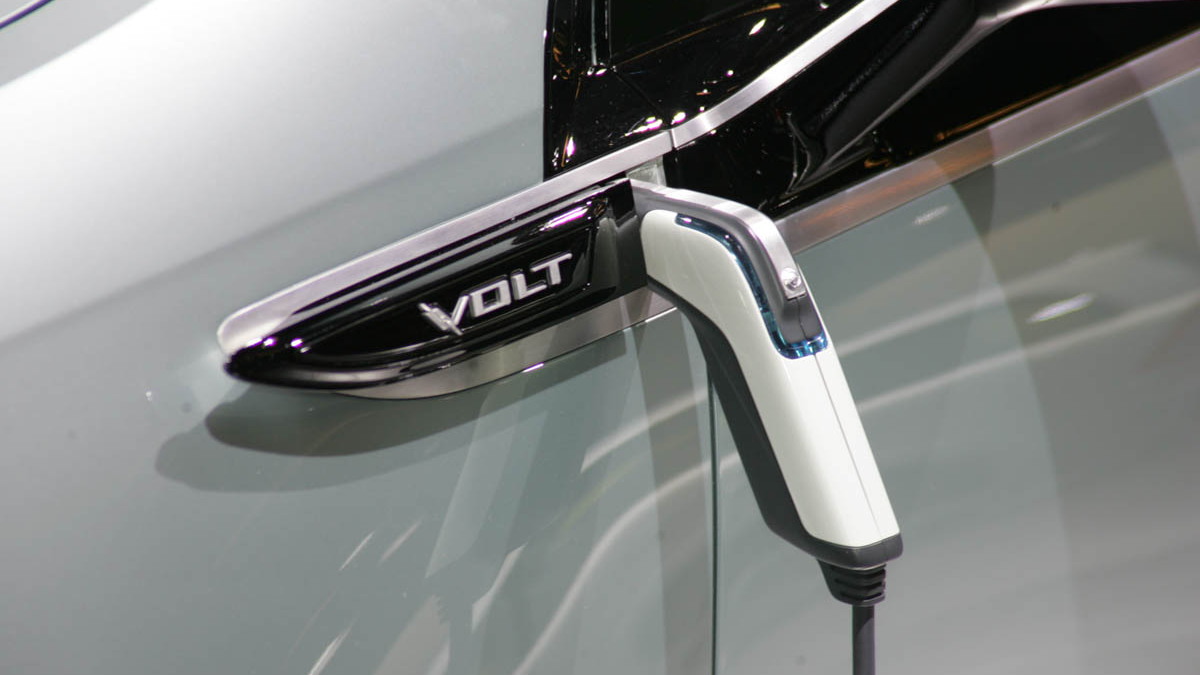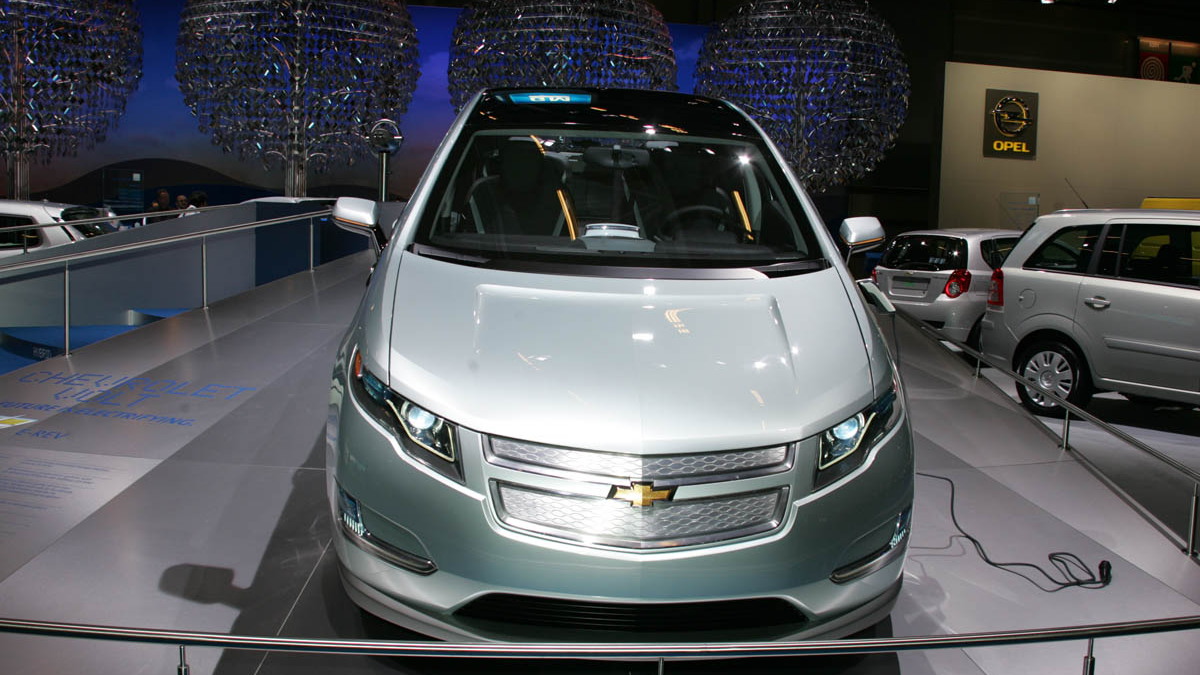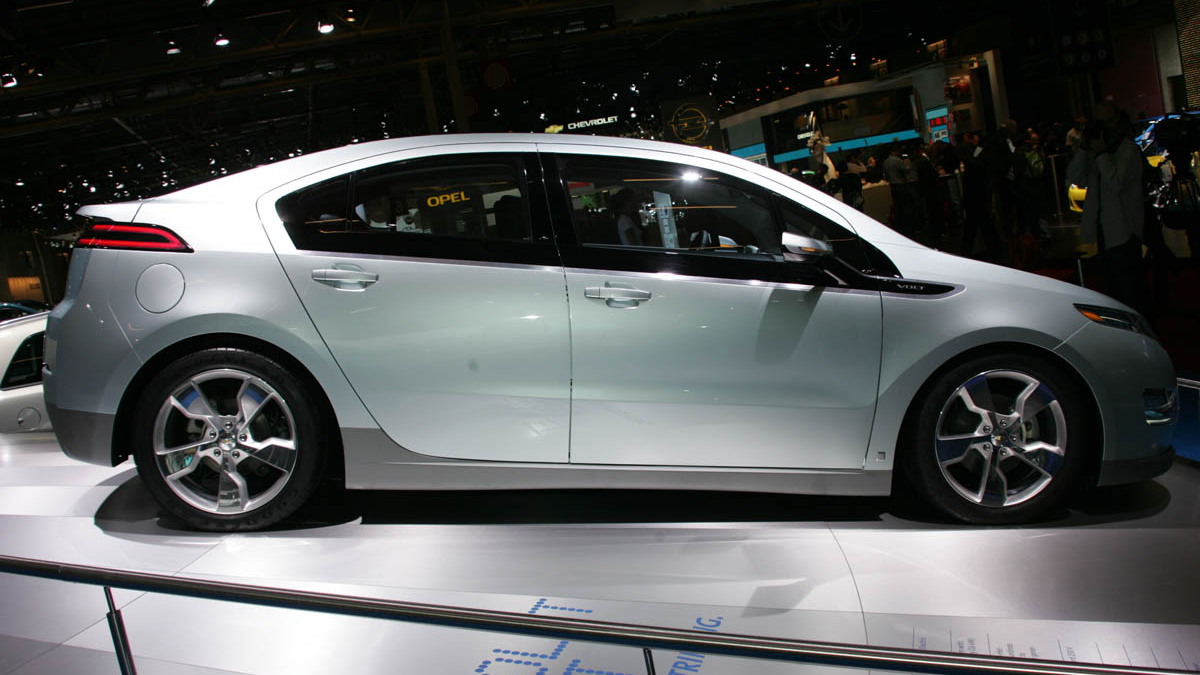A spokesman for LG Chem, Ltd., in Seoul, South Korea, said, ""We were informed that the results are due in November, but we didn't get any official answer from GM yet. We hope for and expect a good result." The contract is expected to be awarded to Compact Power, Inc., a subsidiary of LG Chem, and will be announced in more detail in November, reports Reuters. It is expected to be a supply contract, meaning all of the Volt's batteries will be sourced from the one provider.
Weighing in at 400lbs (182kg), the Volt's T-shaped battery pack is expected to be the most expensive single element of the car, meaning that with the production volume expected for the Volt, the value of this particular battery contract is immense. Already the car is on pace to be the first true mass-market lithium-ion plug-in hybrid (or extended-range EV, as GM prefers to call it) in the world.
Among the issues still being worked out between GM and Compact Power is the warranty process for the high-tech battery packs. Because of the specialized equipment and technology relating to the battery packs and their electronics, it makes sense to outsource warranty work on the battery packs since upgrading GM's service centers to deal with the technology would be prohibitively expensive.
The battery in the Volt plays a central role in the drivetrain system. Unlike a traditional hybrid, where the batteries are a supporting element which the car can - at least in theory - do without, the battery pack in the Volt is the storage unit and intermediary for all the locomotive power sent to the wheels. Whether it's energy from a wall socket, regenerated from braking or generated by the on-board engine, all electricity that flows to the Volt's motors must first pass through the battery pack.
